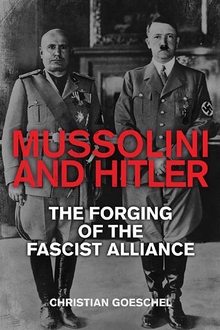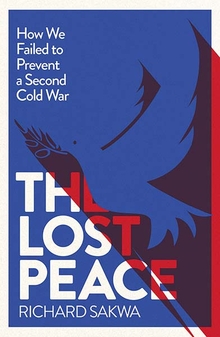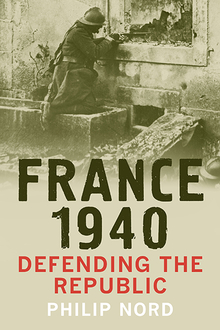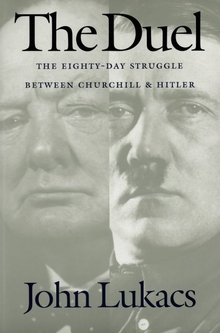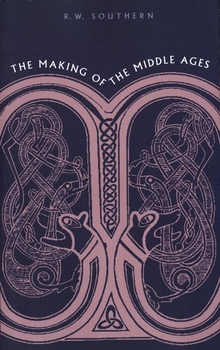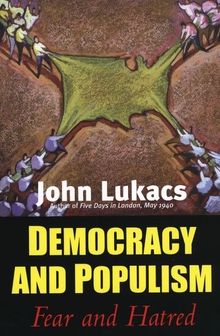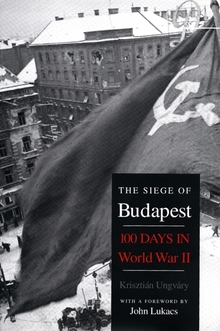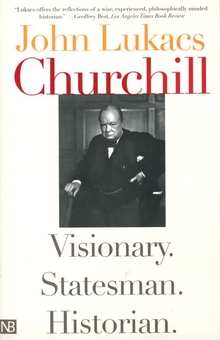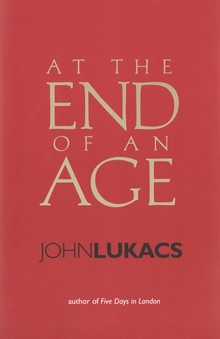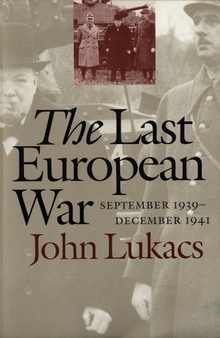June 1941
WARNING
You are viewing an older version of the Yalebooks website. Please visit out new website with more updated information and a better user experience: https://www.yalebooks.com
Hitler and Stalin
John Lukacs
This brilliant new work by the author of the best-selling Five Days in London, May 1940 is an unparalleled drama of two great leaders confronting each other in June 1941. It describes Hitler and Stalin’s strange, calculating, and miscalculating relationship before the German invasion of Soviet Russia, with its gigantic (and unintended) consequences. John Lukacs questions many long-held beliefs; he suggests, for example, that among other things Hitler’s first purpose involved England: if Stalin’s Communist Russia were to be defeated, Hitler’s Third Reich would be well-nigh invincible, and the British and American peoples would be forced to rethink the war against Hitler. The book offers penetrating insights and a new portrait of Hitler and Stalin, moved by their long-lasting inclinations. Yet among other things, Lukacs presents evidence that Hitler (rather than his generals) had moments of dark foreboding before the invasion. Stalin could not, because he wished not, believe that Hitler would choose the risk of a two-front war by attacking him; he was stunned and shocked and came close to a breakdown. But he recovered, grew into a statesman, and eventually became a prime victor of the Second World War. Such are the ironies of history; John Lukacs paints them with a shining narrative skill.
“Lukacs relishes historical ironies… [He believes] that history is not the product of vast, impersonal economic and material forces, but rather lies in the hands of great leaders and statesmen – even ones whose greatness is wholly negative.” - Ludovic Hunter-Tilney, Financial Times Magazine
“No one has done more to turn the short history book into an art form. … This book provides a fascinating insight…” - Antony Beevor, The Mail on Sunday
“A bantam-sized book with a heavyweight punch. Once again, Lukacs has, with great concision and intellectual force, zeroed in on a brief period but momentous episode that literally changed the world. And once again, he has managed to bring alive the protagonists and bring clarity as well as drama to their fateful interaction.”—Strobe Talbott, President, The Brookings Institution
"Arguing that history is the product of specific choices rather than impersonal forces, the historian watches as two specific people make very specific decisions that will shape the rest of the twentieth century."—Benjamin Healy and Benjamin Schwarz, Atlantic Monthly
"Does anybody really need to read another book about Hitler or Stalin? If you think not, spend a few engrossingly profitable hours with John Lukacs' new book, June 1941 and you'll be reminded that the one thing history does not admit is a last word on anything. Lukacs is a distinguished American historian, certainly one of our most distinguished on World war II and its origins. His brilliant book on Winston Churchill and his first war cabinet, Five Days in London, became a surprise bestseller after then-New York Mayor Rudolph W. Guiliani revealed that he had turned to it for inspiration in the aftermath of 9/11. June 1941 is, in some sense, both a companion volume to that earlier study in character and statesmanship and a fascinating extension of its historical method. . . . Part of what makes this book so engrossing is the convincing way in which Lukacs makes the case for the decisive role played by Hitler's complex motives and Stalin's self-deluding and hysterical reaction to events."—Tim Rutten, Los Angeles Times
“June 1941 is in the grand tradition of the 19th-century historical essay, with a sonorous Macauley-esque quality to much of the writing. Occasionally elegant, the style is both seductive and entertaining, as that of all great essays should be. The book’s substance matches its form well.”—Richard Overy, Washington Post Book World
“Brilliant.”—Phillip McMath, Arkansas Democrat Gazette
“Lukacs’s monograph is a short, focused account of the relationship between Hitler and Stalin, not only paying attention to each of these mid-20th-century leaders, but also giving thoughtful consideration to Churchill and Roosevelt and their thinking regarding the other two. The characterizations of the two dictators are precise, as are those of other key players. . . . Historians and others who have never doubted Hitler’s key role in this confrontation will find the author refreshingly clear.”—Choice
"John Lukacs excels at making historical fulcrum moments exciting, explicable and immediate. As with his superb Five Days In London, he shows how important Adolf Hitler's one-man decisions were to the experiences of millions in the twentieth century. When the Fuhrer unleashed Blitzkrieg on the USSR on 21 June 1941, he said that Operation Barbarossa would make the world hold its breath; you will hold yours as Lukacs' narrative unrolls."—Andrew Roberts
"John Lukacs’s June 1941: Hitler and Stalin is one of the fullest and most authoritative portraits of the ambiguous relationship between the two powerful and wily adversaries during World War II’s watershed year. Drawing on newly available source material from the diaries, personal papers and post-war interviews of senior staff members close to each, it is a fascinating and masterfully researched book."—Henry Kissinger
"A fascinating and masterfully researched book."—Henry Kissinger
"A terse and telling book which looks into a familiar turning point in history, and penetrates nearer the marrow than less able historians have done before."—MRD Foot (Michael Foot)
"John Lukacs's latest work, June 1941, showcases the worldliness, strategic wisdom, and superb eye for the personal detail that has made him one of our most experienced, readable, and sophisticated historians of the WW2 era."—Simon Sebag Montefiore, author of Stalin: The Court of the Red Tsar and Potemkin: Catherine the Great's Imperial Partner
Publication Date: July 28, 2007


